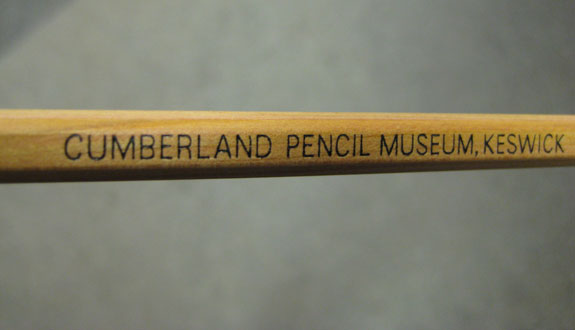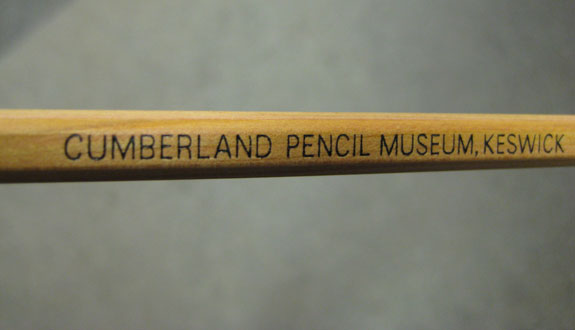The Great Pencil War or What’s True on the LSAT?
- by
- Jun 22, 2009
- LSAT
- Reviewed by: Matt Riley


I’m often asked by my students if anything on the LSAT is actually true. Studying for this Leviathan for three months can be a soul-crushing experience, and it helps to know that you’re at least learning some information that is both interesting and real. I then usually silence them, because people interested in the truth shouldn’t be aspiring to be lawyers. But it’s a good question, or at least a question to which I can kill some time giving a perfunctory and shoddily formulated answer.
Games, obviously, are never true. You know when they’re talking about a bunch of clowns trying to get out of a car, and Bonzo has to get out at sometime before Bobo? There’s no car with eight clowns trying to figure out in which order they should be exiting the vehicle. That car has been sold for King Cobra money long ago, and the men who used to be the clowns are now carnies who have fallen asleep in their ring-toss booths at the county fair. (Note: As of August 2024, the LSAT will no longer have a Logic Games Section. The June 2024 exam will be the final LSAT with Logic Games. Learn more about the change here.)
With reading comprehension, everything is generally more or less factual (that’ll be another blog), but as for the logical reasoning section, it’s a lot harder to pin down. LR questions tend to come in a few varieties of “realness.” Some will be obviously made up, and uninteresting to boot, about random people named Dick or Jane doing something boring like watering plants or putting on pants. Others, however, will be just obvious truisms that don’t need much support, such as:
• Jun 2002: Art history majors are pretty dumb
• Dec 1994: Alternative medicine is a sham (Dear LSAT: I love you.)
• Dec 1999: Scientologists are using poor reasoning to justify their hatred of psychiatry (Dear Scientology: please don’t sue me).
But then come the passages chocked full of info. And they look good. Real good. Good enough for a poke. I wanted to test the truth factor of some of these, so I flipped through my books and found a few gems:
Feb 92
There was this guy Teddy Cooper who was building a bridge for a bunch of French Canadians back in 1907. Because he was just using “the rule of thumb,” his calculations were off, which showed up when something was misaligned by a fraction of an inch. He sent a message to stop work, but was too late, and a bunch of workers drowned.
-This is totally real. The Quebecois were trés angry.
Oct 98
“Early pencil leads were made of solid graphite mined in Cumberland, in Britain. Modern methods of manufacturing pencil leads from powdered graphite are the result of research sponsored by the government of France in the 1970s, when France was at war with Britain and thus had no access to Cumberland graphite.”
-Total crap, right? The Anglo-Franco Writing Utensil War of the 1970s? Well, if you switch the 9 and the 7 in the date, it’s pretty much completely accurate. Back in the Napoleonic Wars, France was cut off from both Britain and Germany, so they had to figure it out for themselves. (I knew my German major would come in handy). I’m actually starting to wonder if that date is a typo in my book…
June 99
“Sharks have a higher ratio of cartilage mass to body mass than any other organism. They also have a greater resistance to cancer than any other organism. Shark cartilage contains a substance that inhibits tumor growth by stopping the development of a new blood network.” It then goes on to talk about how shark cartilage looks like it can cure human cancer.
-This looks true, right? Actually, it’s a bunch of bull poo. Using shark cartilage to treat cancer has been shown to be pretty much pseudoscientific quackery, and sharks certainly can get tumors.
All of this turns out to be fairly problematic for me. I’m not going to law school, and I justify the fact that I encourage other people to waste their lives by knowing that the LSAT is teaching me a bunch of fun party information. The trouble is that I uniformly absorb all information the LSAT gives me like some sort of fat sponge. So at parties I sometimes appear knowledgeable and interesting, telling people all about how airlines’ cost-cutting has caused an increase in the spreading of communicable diseases, and sometimes I’ll talk about monkeys on game shows outperforming stock analysts, causing people to think I’m a refugee from People’s Park (the beard and dirty tennis shoes don’t help).
But back to you, the student. As a lawyer, you will have to argue for things that you don’t necessarily believe, so practicing now makes sense (do you really think Johnnie Cochran believed O.J.?). At the end of the day, to do well on the LSAT you must suspend all disbelief and take whatever they give you, and take it with a smile. Sometimes they will be just lying to you, but it doesn’t matter. The LSAT doesn’t concern itself with “truth” or “facts,” it’s all about arguments and their validity. So tell your friends about the Great Pencil War if you want to. You’ll look smart and they’ll probably never know the difference.
Search the Blog

Free LSAT Practice Account
Sign up for a free Blueprint LSAT account and get access to a free trial of the Self-Paced Course and a free practice LSAT with a detailed score report, mind-blowing analytics, and explanatory videos.
Learn More
Popular Posts
-
logic games Game Over: LSAC Says Farewell to Logic Games
-
General LSAT Advice How to Get a 180 on the LSAT
-
Entertainment Revisiting Elle's LSAT Journey from Legally Blonde








